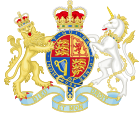- Vagrancy Act 1824
-
Vagrancy Act 1824 
Parliament of the United KingdomLong title An Act for the punishment of idle and disorderly persons, rogues and vagabonds. Statute book chapter 5 Geo. IV c. 83 Territorial extent England & Wales Dates Commencement in force Other legislation Related legislation Vagrancy Act 1935 Statute Law Revision Act 1950 Police and Criminal Evidence Act 1984 Status: Current legislation Text of statute as originally enacted Official text of the statute as amended and in force today within the United Kingdom, from the UK Statute Law Database The Vagrancy Act 1824 (5 Geo. 4. c. 83) is an Act of Parliament of the United Kingdom. It was introduced in 1824 as a measure to deal with specific problems in England following the Napoleonic Wars. The large numbers of soldiers who arrived, and who were discharged on to the streets with no job and no accommodation, were joined by a massive influx of economic migrants from Ireland and Scotland who travelled to England, and especially London, in search of work. The ancient pass laws were of no use in dealing with the increased numbers of homeless and penniless urban poor. The Vagrancy Act was therefore introduced as a method of dealing with a specific early 19th-century problem.
Although the Act originally only applied to England and Wales, Section 4 of the Act, which deals mainly with vagrancy and begging, was extended to Scotland and Ireland by section 15 of the Prevention of Crimes Act 1871. The Vagrancy Act 1898 and the Criminal Law Amendment Act 1912 further extended provisions of the Vagrancy Act 1824 to Scotland and Ireland.[1]
The Vagrancy Act 1824 makes it an offence to sleep on the streets or to beg. In essence, therefore, it is a crime in England and Wales to be homeless or to cadge subsistence money. When the Act was passed, criticism of it centred on the fact that it created a catch-all offence. To sleep on the streets or to beg subsistence became a crime, whatever reason an individual might have had for being in such a predicament. That provision still pertains today.
Until recently it was believed that the Vagrancy Act 1824 had largely withered away in England through lack of use. In recent years, however, as the number of homeless people sleeping out has risen, the use of the Act has increased dramatically, especially in the Metropolitan Police district (most of Greater London).
In 1988, in England and Wales, some 573 people were prosecuted and convicted under the Vagrancy Act. In May 1990, the National Association of Probation Officers carried out a survey of the prosecutions under the Act. That survey revealed that 1,250 prosecutions had been dealt with in 14 central London magistrates courts in that year, which represented an enormous leap in the number of prosecutions under the Act, especially in London.
The Act was amended several times, most notably by the Vagrancy Act 1838, which introduced a number of new public order offences that were deemed at the time to be likely to cause moral outrage.[2]
The Vagrancy Act 1824 is still in force in the both England and Wales and Ireland today, although it is much amended by subsequent legislation. So far as it extended to Scotland, it was repealed by the Civic Government (Scotland) Act 1982.
S18 of the Firearms and Offensive Weapons Act 1990 (Ireland) Repeals S4 of the Vagrancy Act 1824.[3]
References
- ^ The Law Reform Commission,Report on Vagrancy and Related Offences (Dublin: LRC (Ireland) 1985) p.6f
- ^ HC Deb 25 June 1991 c861
- ^ http://www.irishstatutebook.ie/1990/en/act/pub/0012/index.html
External links
- Official text of the Vagrancy Act 1824 as amended and in force today within the United Kingdom, from the UK Statute Law Database
- Official text of the Vagrancy Act 1824 as originally enacted within the United Kingdom, from the UK Statute Law Database
 United Kingdom legislation
United Kingdom legislationPre-Parliamentary legislation Acts of Parliament by states preceding
the Kingdom of Great BritainActs of the Parliament of England to 1483 · 1485–1601 · 1603–1641 · Interregnum (1642–1660) · 1660–1699 · 1700–1706
Acts of the Parliament of Scotland
Acts of the Parliament of Ireland to 1700 · 1701–1800Acts of Parliament of the
Kingdom of Great Britain1707–1719 · 1720–1739 · 1740–1759 · 1760–1779 · 1780–1800
Acts of Parliament of the United Kingdom of
Great Britain and Ireland and the United
Kingdom of Great Britain and Northern IrelandChurch of England Measures Legislation of devolved institutions Acts of the Scottish Parliament
Acts and Measures of the Welsh Assembly
Acts of the Northern Ireland Assembly / of the Northern Ireland Parliament
Orders in Council for Northern IrelandSecondary legislation Categories:- 1824 in law
- United Kingdom Acts of Parliament 1824
- Homelessness
Wikimedia Foundation. 2010.

